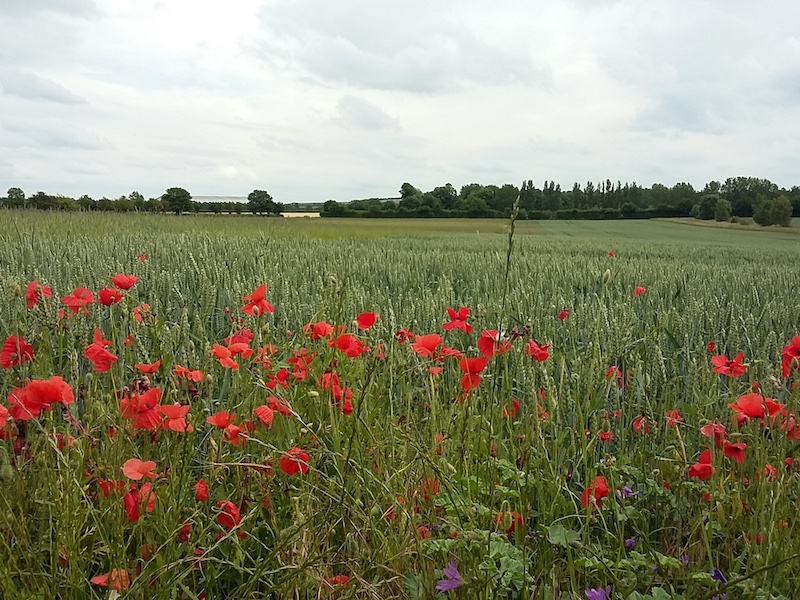How can we farm to protect our soils?

Decades of intensive agriculture have left our soils degraded, suffering high levels of erosion and runoff that can contribute to flooding, as well as putting future crop yields at risk. Emily Howes is a Research Assistant at Heriot-Watt University working as part of a team of researchers around the UK to study the effects of a range of sustainable agriculture methods on soil properties.
Why do agricultural methods need to change?
Throughout the latter 20th Century, UK agriculture has rapidly intensified. However, this has come at great cost to our soils, degrading their structure, leaving them depleted of nutrients and carbon and causing soil erosion. This could reduce the crop yields we need to feed the growing population. Farming methods urgently need to change to preserve agricultural productivity and ecosystems.
How can farming methods become more sustainable?
Leys are temporary grasslands integrated into crop rotations to restore soil quality. Integrated crop-livestock systems, where livestock graze on forage crops, stubble, leys and pasture in arable rotations, increase soil nutrient availability and reduce the need for artificial fertilisers, herbicides and agricultural machinery use. Reintegrating livestock and leys into crop rotations could improve the sustainability of food production and the structure, nutrients, carbon storage and biodiversity of degraded arable soils.
Will these methods make a difference?
Heriot-Watt is working with the Universities of Sheffield, Birmingham, Bangor, the National Institute of Agricultural Botany (NIAB), the UK Centre of Ecology and Hydrology (UKCEH) and Rothamsted Research on the ‘Restoring soil quality through re-integration of leys and sheep into arable rotations' project, funded by BBSRC and the Sustainable Agriculture Research and Innovation Club (SARIC). Our research investigates how leys and sheep grazing affect soil quality, water storage, soil nutrients, livestock health (e.g.- parasite burden), pest management and crop productivity. The research sites, established in 2018, allow us to compare the impact of multispecies ‘herbal' leys and conventional grass-clover leys on soil health over different soil types across eastern England. The data from the 4-year project will allow us to model the impact of leys and sheep grazing on farm economics and environmental benefits such as flood risk reduction to help translate these results into policy.
Find out more about the project on the Cotswold seeds website.
Why is this research needed?
Modern agriculture faces many economic challenges, from crop disease to herbicide-resistant weeds to stagnating yields, reducing productivity and often requiring expensive chemical inputs to manage. Leys could offer potential to improve soil structure and fertility, whilst integrating grazing can help to manage weeds and reduce herbicide dependence, which could make them valuable in tackling soil degradation and supporting the long-term sustainability of UK agriculture. Our farm-scale experiments will provide much-needed evidence about these approaches to support farmers in making informed decisions about managing their land sustainably.
Is there hope for these sustainable agricultural methods in the future?
With some UK farmers beginning to trial leys and integrated grazing, these methods are showing promise. An evidence-led approach is crucial in introducing leys and sheep grazing efficiently for farms and sustainably for the environment. Our work will contribute information to support farmers to conserve their soils, strengthen their businesses, and inform policymakers so that we can benefit from healthy soils, functioning ecosystems and resilient harvests in years to come.
If you farm or own arable land in Lothian and would like to find out more about this research, contact Emily at e.howes@hw.ac.uk.